The History of The English School
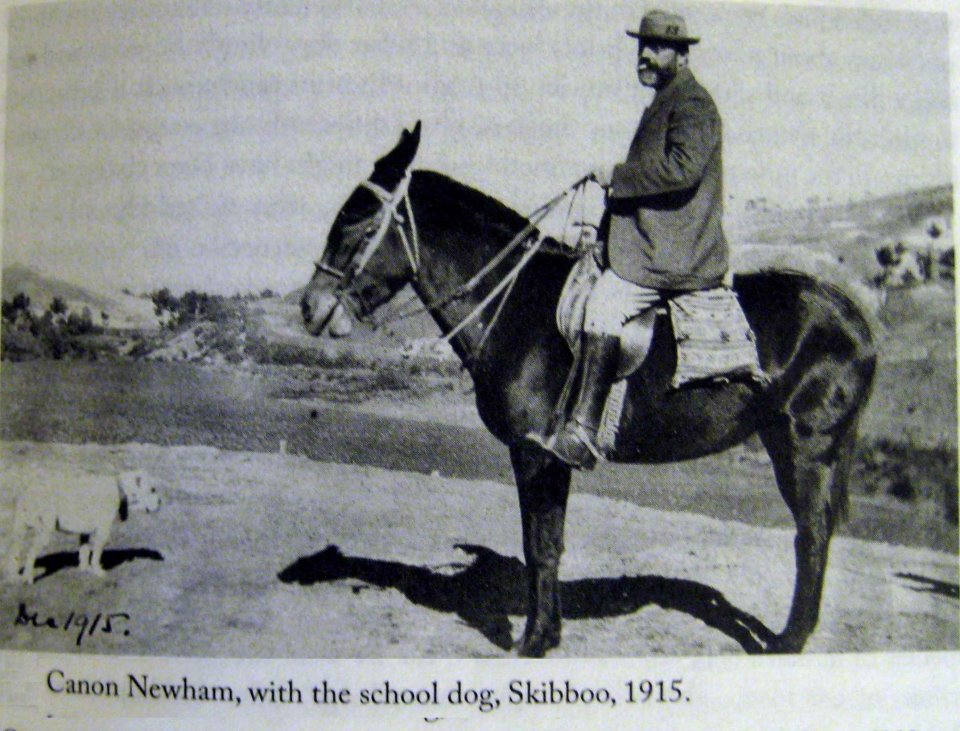
The English School was founded in 1900 by Canon Frank Darvall Newham, who arrived on the island at 36 years old to instruct government clerks in English. He later served as Director of Education under the colonial administration and Headmaster of The English School until his retirement in 1936. Starting with just 13 students, the School rapidly grew to become Cyprus's premier English-medium institution, attracting a diverse student body from both local and international communities.
.jpg) |
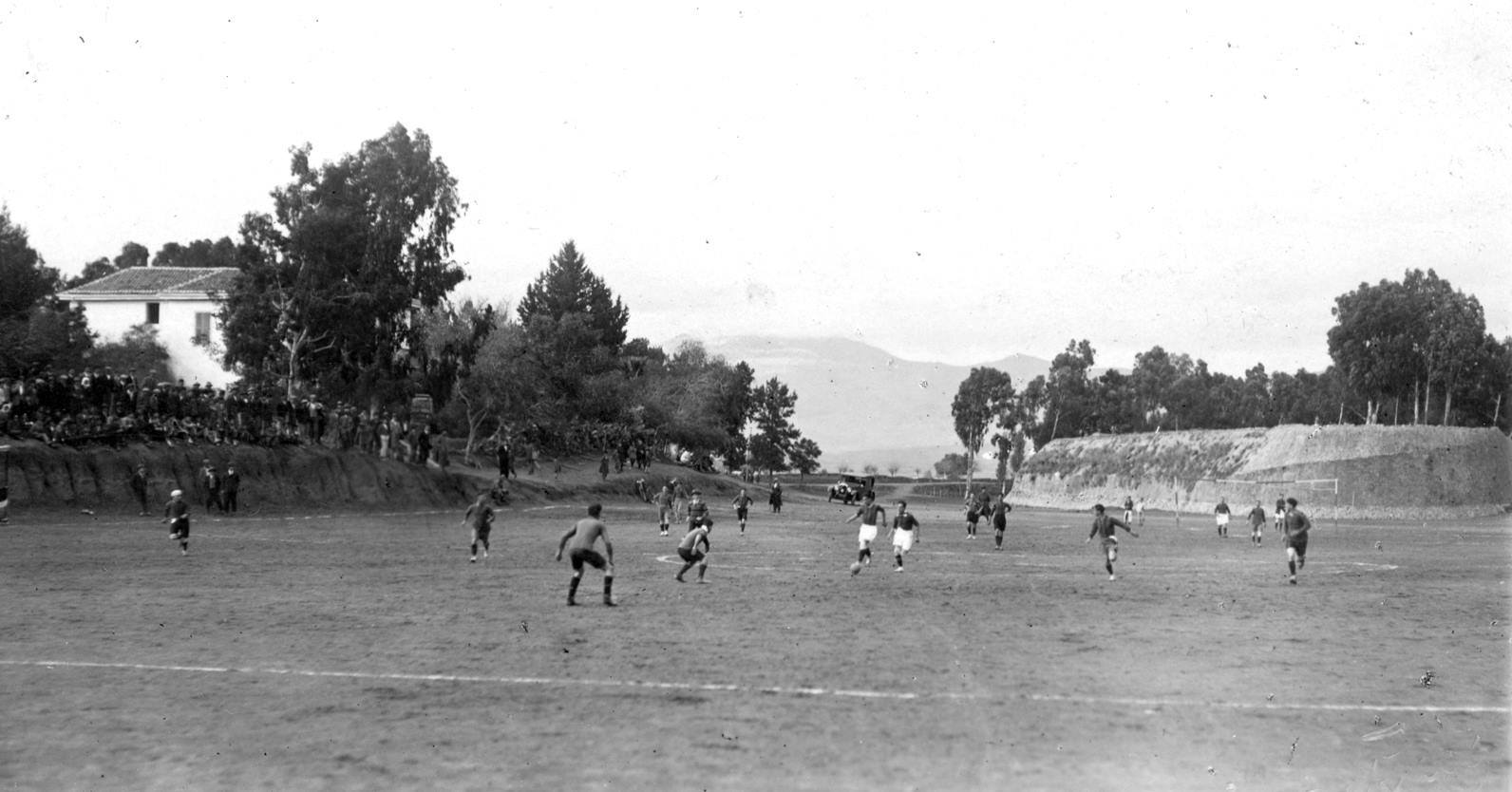 |
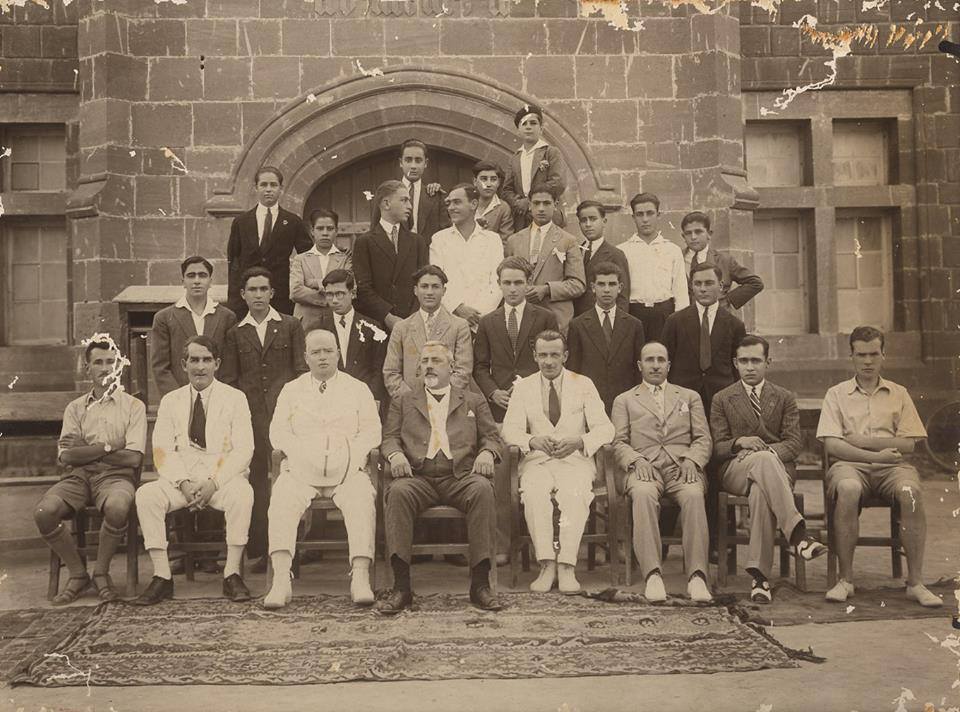 |
||
| 1922 - A school photograph taken at the school premises which at the times were what is now the Law Courts |
1928 - Nicosia, 1928 - A football match between students of the school. In the background, the Pentadaktylos mountain range... |
1930 The English School Staff Photo |
In 1936, Canon Newham entrusted the School to the colonial Governor, leading to a formal status change. Despite this, the School remained an English-medium, inter-communal institution with a Christian ethos, while allowing students of various faiths to practice their religions as outlined in The English School Management and Control Law of 1935 and its amendments. This shift only strengthened the School’s reputation as a leading academic institution.
.jpg) |
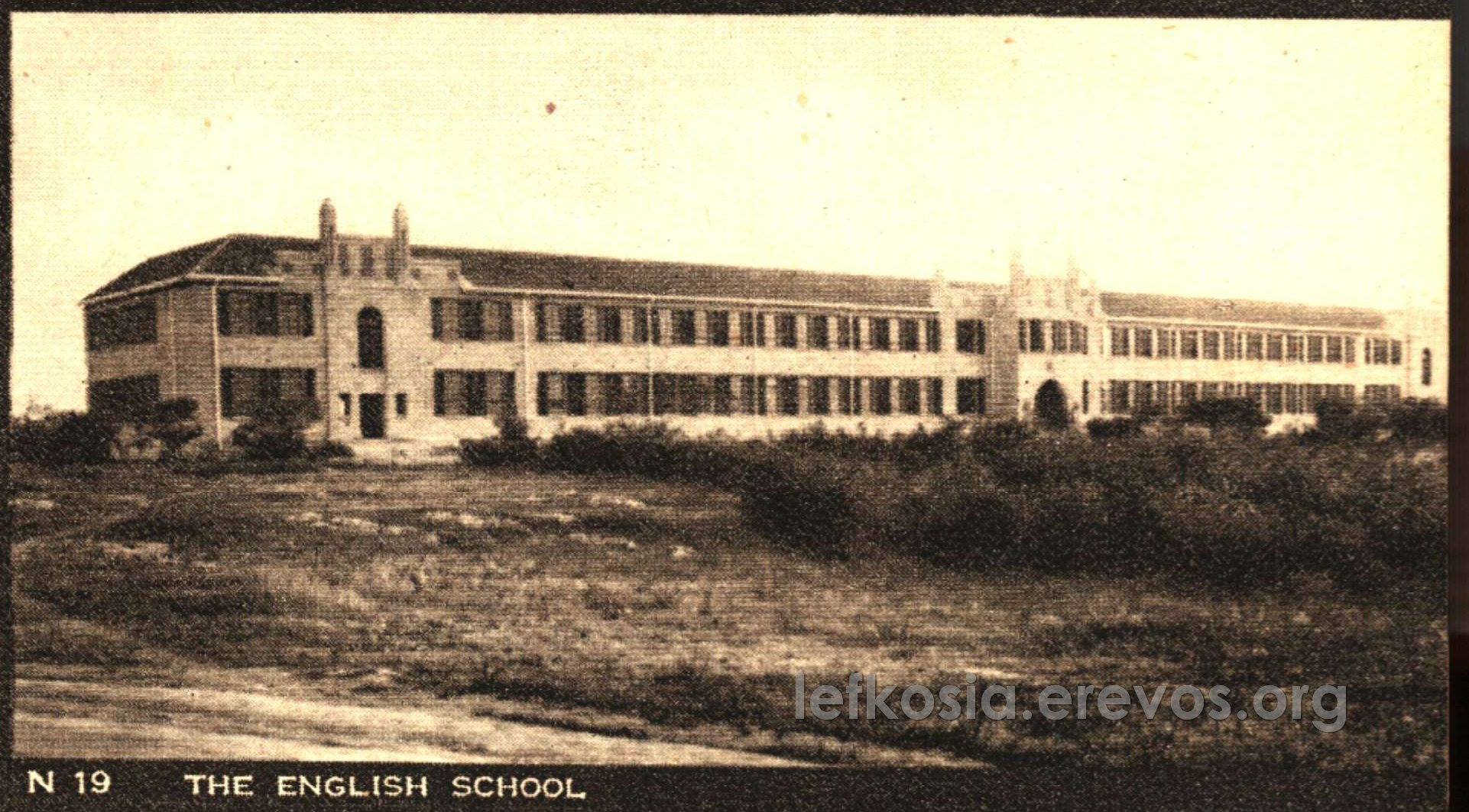 |
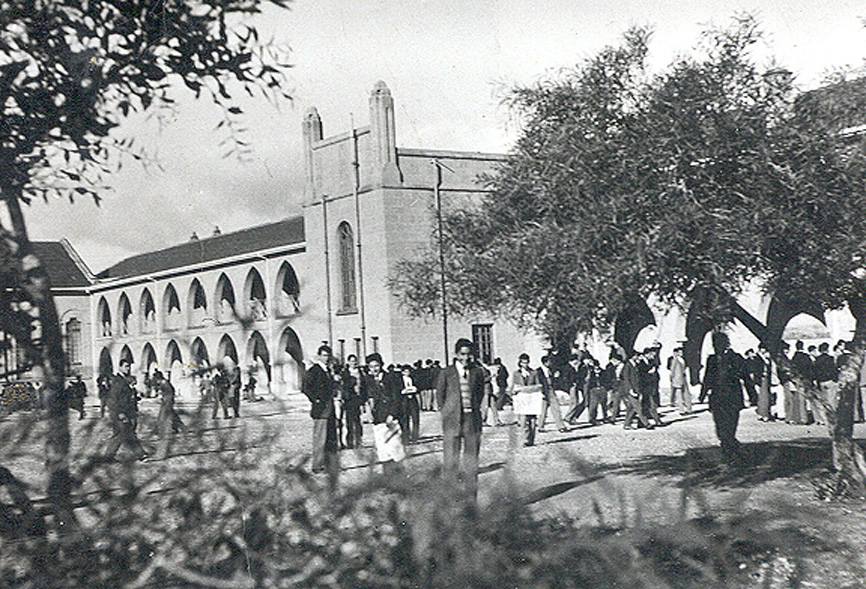 |
||
| 1938 July - The English School building (Centanary Album) | 1938 July - The English School building (Centanary Album) |
1950 The English School in Action |
Throughout its history, the School moved among different locations in Nicosia, including the current District Courts. However, in 1938, Canon Newham’s vision led the School to its purpose-built campus in Strovolos. The Lloyds Building and the Alks Building were later built in 1940 and 1947, respectively, as impressive boarding facilities. During World War II, the School temporarily relocated to the Dome Hotel in Kyrenia but returned to its campus before Canon Newham’s passing in 1946.
In 1957, The English School for Girls was established and later integrated with The English School in 1962, making it Cyprus’s first co-educational institution. Following Cyprus’s independence in 1960, a special law transferred control of the School to the Republic of Cyprus, with a Board of Management overseeing its operations. Ms. Joanna Demetriou currently chairs the Board of Management.
.jpg) |
.jpg) |
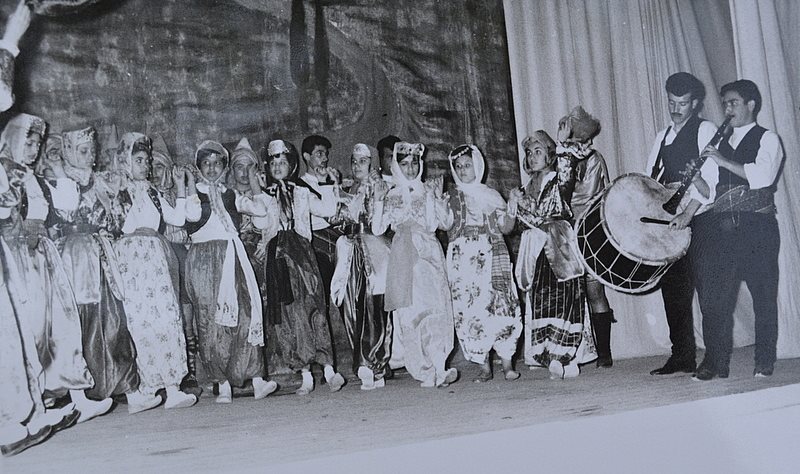 |
||
| 1969 - Chemistry Laboratory | 1960s - the English School Concerts by Mr Panayi (late 60s) | 1962 - Turkish Night |
The School’s commitment to serving all Cypriot communities led it to establish several boarding houses, welcoming students from across the island. By 1974, enrollment exceeded 1,000 students. However, the events of that year led Turkish Cypriot students and staff to withdraw, and the School’s Alks Boarding House was offered to the government as a temporary refugee school, which later became the Acropolis Gymnasium. In the 1980s, the Lloyds Boarding House was repurposed as classrooms for Year 1 and 2 students. Despite these transitions, the School has continued to serve all communities and maintain its esteemed status.
In 2003, after a 29-year hiatus, The English School welcomed Turkish Cypriot students once more, reflecting its dedication to inclusivity and diversity.
Academic Excellence and Curriculum
The English School follows an academic programme modeled on the British independent secondary school system. In their first three years, students receive a broad education to prepare them for public examinations and explore a range of subjects. By Year 3, students select IGCSE subjects, with compulsory courses in English Language and Literature, Mathematics, and Modern Greek or Turkish. In Years 6 and 7, students design an individual academic pathway, choosing four subjects, and may narrow this focus to three or four Advanced Level (AL) subjects in Year 7.
Extracurricular Activities
The School offers a diverse array of extracurricular activities, encouraging students to join over 40 clubs and societies, from Mathematics, Economics, and Literature to the Duke of Edinburgh's International Award, F1 in Schools, Chess, Music, and First Aid. Notably, the School’s debating society consistently ranks highly in international competitions, and its Greek Play has twice won first prize in the Pancyprian Competition for Secondary Schools. The Comenius I Language Project, a cultural exchange with Radnotti School in Hungary, further enriches students’ educational experience.
Sports and Athletics
Sports have been integral to The English School since its founding, fostering teamwork and competitive spirit. The School’s House system organizes both competitive and non-competitive sports, encouraging students of all abilities to participate in sports such as football, basketball, volleyball, hockey, athletics, and cross-country. Under the guidance of experienced Physical Education teachers, the School has achieved remarkable success in Pancyprian competitions and international tournaments, including the Dubai Football Tournament.
Music and the Arts
Music is a vibrant part of the School’s culture. Since 1911, the Choir and Orchestra have provided students with opportunities to cultivate their musical talents. The School offers free music tuition to select students with exceptional aptitude, fostering an inclusive environment for artistic growth.
Facilities and Resources
The 6th and 7th Form Study Center and the Library Resource Centre are essential components of the School’s academic support, equipped with state-of-the-art computers, books, magazines, and multimedia resources. The School’s infrastructure includes the historic stone-built Main Building from 1938, a Sports Centre added in 1990, and a modern Science Building inaugurated in 2004, which houses science and ICT labs, the Library Resource Centre, and a Lecture Theatre. In 2017, the Newham Building was replaced with modern premises funded by the government, demonstrating the Board’s commitment to providing students with high-quality facilities.
Career and University Preparation
The School’s Career & University Entry Department guides students towards securing placements at top universities, recognizing that success requires more than just A-level grades. This department supports students throughout their academic journey, helping them achieve their ambitions.
Community and Alumni Support
The English School is fortunate to have the support of a very active and supportive Parents' Association (ESPGA) and Graduates' Association (ESOBGA), whose financial assistance and support are invaluable. Graduates of The English School have made remarkable contributions to all walks of Cypriot society, including the sciences, medicine, education, politics, the arts, the business world, government service, and the clergy. Many English School graduates have also made successful careers abroad, a testament to the School's high standards of education and training.
A Legacy of Leadership
The English School has been led by a distinguished line of Headteachers who have contributed significantly to the School's development and success. Since its founding in 1900, the School has been managed by Rev Frank Derval Newham from 1900-1936, George Sims from 1936-1947, Eustace Jackson from 1947-1956, Paul Griffin from 1956-1960, Rex Hamer from 1960-1962, Anthony Eggleston from 1962-1968, David Humphreys from 1968-1988, Albert Hudspeth from 1988-1996, Thomas Thomas from 1996-1998, Emilios Solomou from 1998-1999 (Acting), Robert Swan from 1999-2003, Stuart J Haggett from 2003-2009, Deborah Duncan from 2009-2011, Graham Gamble from 2011-2015, Graham Garrett from 2015-2017, Chris Mavrommattis from 2017-2018 (Acting), David Lambon from 2018 -2023 and the current Headmaster, Stuart Walker who has been leading the school from 2023. These leaders have brought with them a wealth of experience, expertise, and vision that has helped shape the School into the premier institution that it is today.
A Lasting Legacy
Canon Frank Darvall Newham’s legacy continues to inspire students and staff. In addition to founding The English School, he introduced sports such as football, hockey, and cricket to Cyprus and established many “firsts,” including hosting the island’s first football match in 1900 and opening Cyprus’s first science laboratories recognized for university exams in 1952. The School remains a testament to his pioneering spirit, continually adapting to serve future generations with excellence in education.
